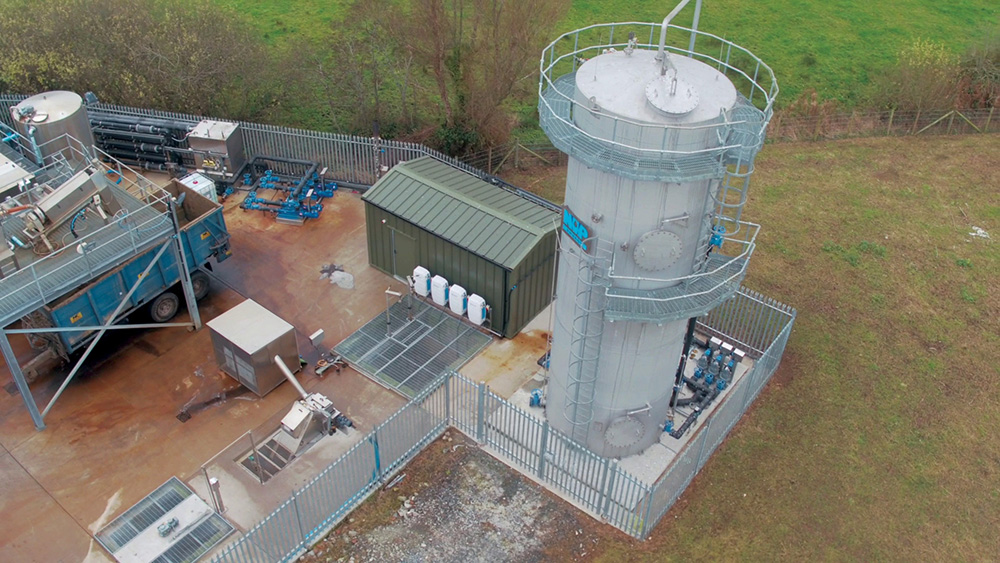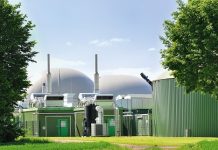Treating low strength wastewater at low temperature
How best to treat wastewater is one of the greatest challenges facing the water industry. The environmental concerns are two-fold, firstly, the impact of discharges on the environment and secondly, the high energy usage integral to some traditional treatments.
Meeting these challenges, moreover, has to be achieved without passing the cost onto customers – so finding a sustainable alternative for which a strong business case can be built is crucial. Most Anaerobic Digestion (AD) systems necessitate the use of high temperatures, which in turn, mean their energy usage is high – negating their benefits in some respects.
Pioneering research, now proven at full scale, by the Department of Microbiology at The National University of Ireland, Galway, has led to a low-temperature AD being developed which is ideal for treating high volumes of low strength wastewater.
The technology has been developed over a number of years, first at the lab bench, then scaled up over 100 times in order to be piloted in the food & drink and municipal industries, testing the technology’s effectiveness, reliability and feasibility.
In 2013, NVP Energy was formed to transfer the technology to the commercial sector, making it available to the food and drink, dairy and utility industries; and the results have been staggering.
The innovative design and microbiology typically achieves a reduction in organic wastewater contaminants that is greater than 80%. So efficient is the technology, that it has been shown to reduce energy costs by as much as 90% and reduce sludge production by 90% when compared to activated sludge treatment installations.
This ground-breaking wastewater treatment technology incorporates anaerobic granular biofilms which convert the organic pollutants to biogas with a high methane content. The unique design allows the process to proceed with no external heat input, operating at ambient temperatures as low as 4 degrees Celsius, meaning all of the energy produced can be recovered.
The biogas produced is of high quality, with a typical methane content of 85%, it has lots of possibilities – it could be used for on-site electricity and/or heat generation or even utilised to power a vehicle.
The treatment plants can also be easily integrated into existing infrastructure or installed as part of a new build wastewater treatment plant – meeting the needs of almost any site, taking up little space and minimising downtime during their installation.
NVP Energy has gone from strength to strength, with their first commissioned energy plant going into operation in 2016 for the ABP Food Group, one of Europe’s leading privately owned food processors, at their site in Lurgan, Co. Armagh.
As ABP’s sustainability manager John Durkan explains: “ABP is always on the look out to support and enable innovative and technology driven projects that will solve problems, so this project ticked all our boxes. It’s carbon neutral, sustainable, odourless, cutting edge technology, low cost of treatment, no sludge production with clean waste water discharge. On top of that, it delivers high quality methane gas for use on site.”
Following this successful installation, NVP Energy opened their second plant in 2017 for Arrabawn Dairies Group, as Jerry Ryan, their Technical & Quality Director attests:
“NVP Energy are extremely professional to work with from initial contact and feasibility assessment to installation of the solution. Their cost effective wastewater treatment solution with its short return on investment made it an easy choice.”
It is clear that NVP Energy’s wastewater treatment plants provide a plethora of benefits, from removing pollutants from wastewater effectively to producing high quality biogas, that can be utilised in a number of ways.
Overall, the technology has the potential to reduce the cost of wastewater treatment, as it doesn’t necessitate high electricity usage, so the operating costs are reduced. In fact, the energy the plants produce is greater than the energy they use, meaning the excess can be used in a number of ways.
NVP Energy has garnered a number of awards for this low-temperature AD technology including the 2018 Energy Globe Award, of which they are just about to take receipt and the 2017 ‘Best Technology Innovation’ at the BlueTech Forum, which is synonymous with water innovation.
Additional accolades include the ‘Most Innovative New Technology of the Year’ at the Water Industry Achievement Awards (2015) and the ‘Innovation Award for Energy from Waste’ at the Environment & Energy Awards (2015) – plus many more.
Building on their success, a number of new projects are currently in construction in the brewing, malting and municipal industries, most notably with brewing giant – Heineken on a UK brewing site. The company are bringing their ground-breaking technology to the UK, Europe and the US – and to industries where AD had previously been thought unfeasible.
NVP Energy is fast overturning such assumptions, showing that AD treatment plants can be energy efficient and cost-effective – potentially turning an operational loss into an additional source of revenue. Their AD technology that treats low strength wastewater at low temperature, is now being used in the water, meat processing, dairy, brewing, malting distilling and bottling industries.
nvpenergy.com






